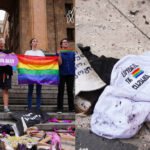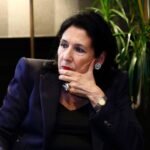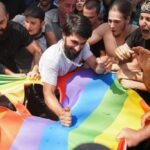The Women’s Fund in Georgia held the presentation of the research “Read Between the Lines”.
The research “Read Between the Lines” examines the experiences of women’s and human rights organizations, queer collectives, and activists in the Black Sea region amid ongoing crises, including the consequences of the Covid-19 pandemic and Russia’s war against Ukraine.
The results of the research were presented by a feminist researcher and activist Nukri Tabidze.
The research was conducted between March and December 2022 and about 70 activists and civil sector representatives were interviewed in Ukraine, Bulgaria, and Georgia.
The research covers the following main issues:
- The general experience of Ukrainian women’s rights organizations in 2022, their situation before and after the beginning of a full-scale war;
- How do artistic, feminist, queer, and political spaces managed by women function in Georgia? The impact of the mentioned crises on their lives and cooperation with other activist collectives operating in Georgia;
- What was the response of CSOs in Bulgaria to the crisis caused by the pandemic and the war, their relationship with the government, and the prevention of professional burnout.









